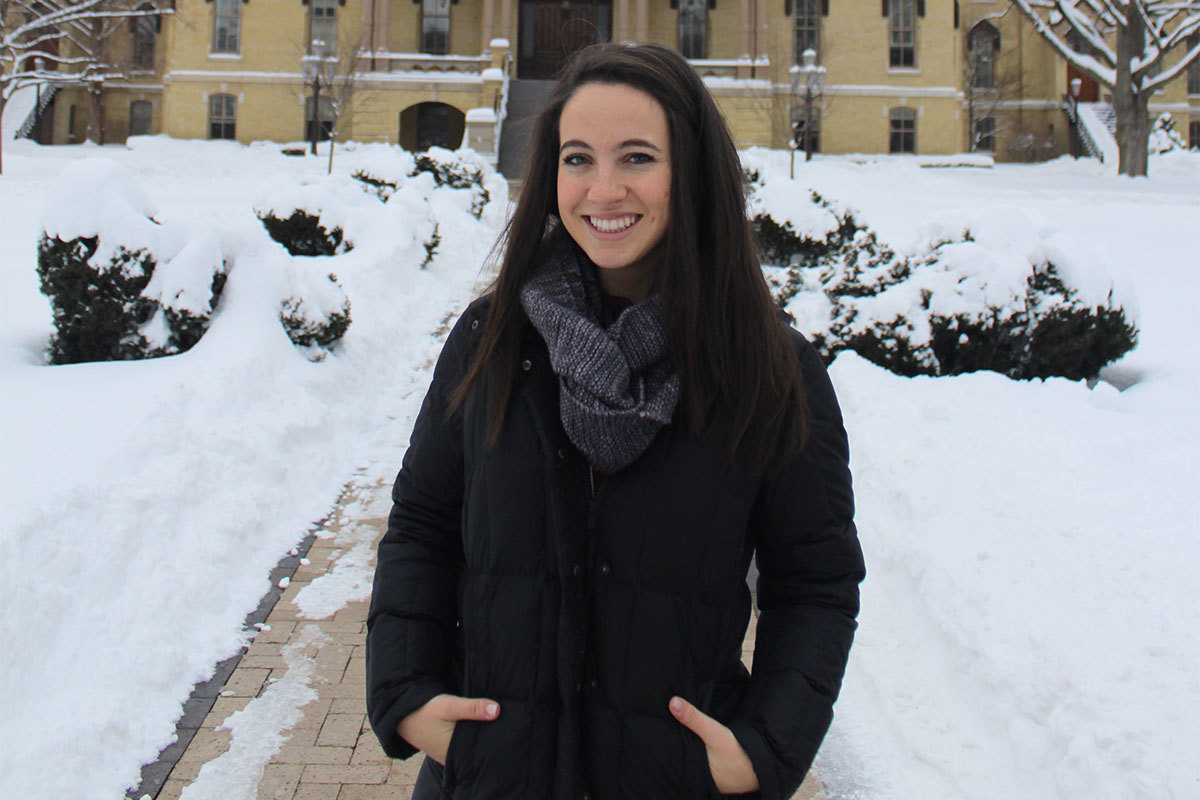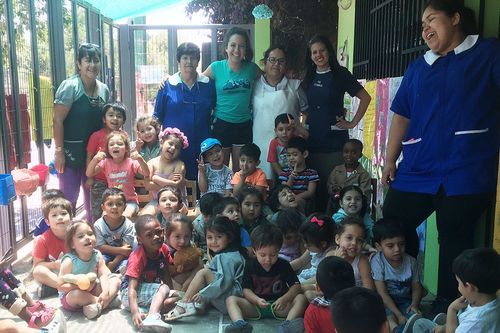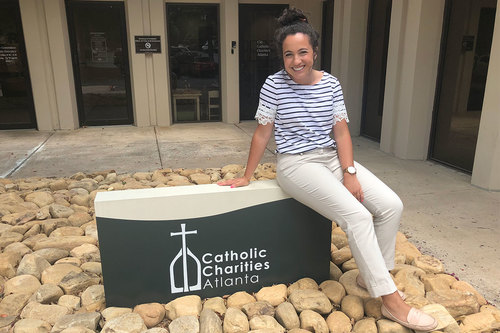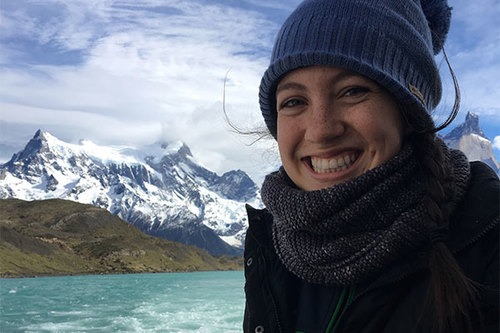
Georgia Twersky loves diving deep into data when she’s studying economics. But her experiences at Notre Dame have helped her see the value of understanding the people behind the numbers, as well.
An international economics major with a Spanish concentration and a minor in peace studies, the senior has found numerous ways that her academic disciplines support one another, preventing her from missing perspectives that might be lost by focusing on just one area.
“In economics, you think of people as a measure of human capital, but through studying Spanish you think, ‘Who is this person? What are their demographics? Who am I looking at or how might my data be skewed because of how the data was gathered?’” Twersky said. “It’s really cool to combine the two, because the humanities are so people-focused and economics is so numbers-focused.”
In economics, she learns about the efficiency or inefficiency of a certain market, but peace studies helps her understand how that can lead to equality or inequality — making a real difference in the lives of people, including some she encountered during her time abroad and through a summer internship.
“A market can be in equilibrium but it can still be very unequal,” she said. “And that’s the case in Chile — I lived it, I saw it. I went to the fanciest school there, and then I would go volunteer on the outskirts in the greater metropolitan area and it was so poor.”
“In economics, you think of people as a measure of human capital, but through studying Spanish you think, ‘Who is this person? What are their demographics? Who am I looking at or how might my data be skewed because of how the data was gathered?’ It’s really cool to combine the two, because the humanities are so people-focused and economics is so numbers-focused.”
Finding a fit
A first-generation college student from Los Angeles, Twersky initially thought her only options for college would be schools within California. Then she heard about QuestBridge, a nonprofit that supports high-achieving, low-income students and helps them pursue admission at top universities, including Notre Dame.
Twersky applied to Notre Dame through QuestBridge, visited campus, and fell in love. While originally intending to major in math, her interests broadened during her first year, especially once her adviser recommended she take a microeconomics course. She was immediately hooked by the real-life practicality of the subject.
“I personally think every freshman should take it because it teaches the basic skills of market economies, which I think are so applicable to everyone,” she said.

She declared an international economics major when she realized it blended rigorous economics coursework with advanced study of a foreign language — in her case, Spanish.
“I was like, ‘This is perfect.’ I really like problem-solving and can get math skills under my belt, and I can also go abroad and tailor my electives to social issues I care about,’” Twersky said.
The summer following her sophomore year, she seized an opportunity to go to Berlin with the International Economics Abroad Summer Program. There, she took courses and volunteered at a K-12 school which was one of the first to take in Syrian refugees. As part of a mentoring program, Twersky visited the school twice a week, tutoring the children in English and playing soccer with them.
Her work with refugees continued the following semester when she studied abroad in Santiago, Chile. As part of a class on poverty and development, Twersky commuted two hours by train to volunteer at a preschool in a poorer area of the city.
“They had a lot of migrants from Haiti, Venezuela, and Columbia there, and I was starting to question why they were all flocking to Chile,” Twersky said. “It also made me wonder about the reasons why people are flocking to the U.S. border.”
Research and refugees
Her curiosity about the underlying causes of migration inspired her to take an introductory peace studies course, where she learned about structural-cultural violence, systemic racism, why civil wars are started, and current events in the Middle East.
Twersky discovered a real-world outlet for her academic interests and passion for working with refugees during a Summer Service Learning Program (SSLP) through the Center for Social Concerns following her junior year. She spent eight weeks in Atlanta working with the refugee resettlement division of Catholic Charities, which serves individuals and families from El Salvador, South Sudan, Eritrea, and Ethiopia.

The internship offered her the freedom to make what she wanted of her summer, and she chose to immerse herself in the community and find ways to address their needs. She soon noticed that Catholic Charities was regularly running out of the bus passes they received from the city of Atlanta every month.
“These were crucial for our clients to make their appointments with their doctors, school registration, and job interviews,” Twersky said. “I know from econ that you always prove something from data, and I know from peace studies how to make a culturally sensitive survey, so I made a survey for clients.”
Twersky crafted the survey, worked with others in the office to translate it into six different languages, then distributed it to clients. Her results showed that 88 percent of clients were using the bus passes to take their kids to school or go to a job interview — data that persuaded the city to double the number of passes it provided Catholic Charities every month.
Real-world applications

After graduation, Twerksy will begin working at Roche Diagnostics, a full-time job she was placed in through the Orr Fellowship, which pairs college graduates interested in entrepreneurship and business with Indianapolis-based companies.
She plans on bringing her unique, human-centered perspective on economics to Roche, a multinational pharmaceutical and hospital equipment company.
“I think in peace studies you understand people of different backgrounds, and it will be really useful to be relatable and conscientious of that,” she said.
“The needs of the hospital can relate a lot to the people it’s serving, and I’ll always be keeping that in the back of my mind.”


